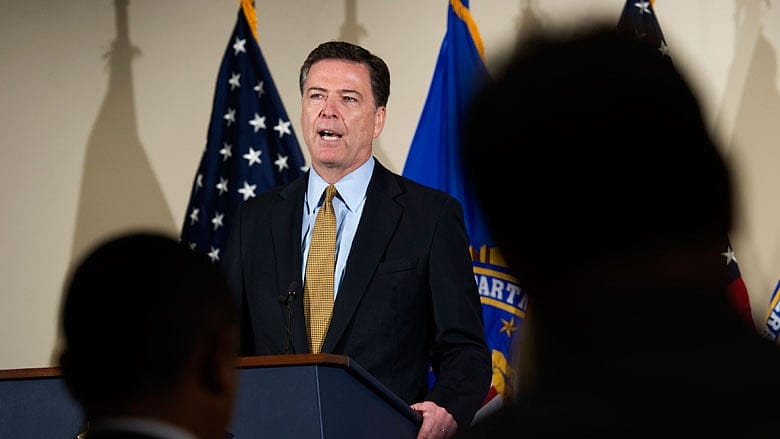FBI Director Comey tells Congress: ‘We have not changed our conclusions’ on Clinton investigation

(CNSNews.com) – FBI Director James Comey sent a letter to several congressional committees on Sunday telling them that the FBI had reviewed all of the emails sent to or from Hillary Clinton when she was secretary of state that Comey said were "from a device obtained in connection with an unrelated criminal investigation" and that "we have not changed our conclusions that we expressed in July with respect to Secretary Clinton."
Back on July 5, Comey said: "Although there is evidence of potential violations of statutes regarding the handling of classified information, our judgement is that no reasonable prosecutor would bring such a case."

